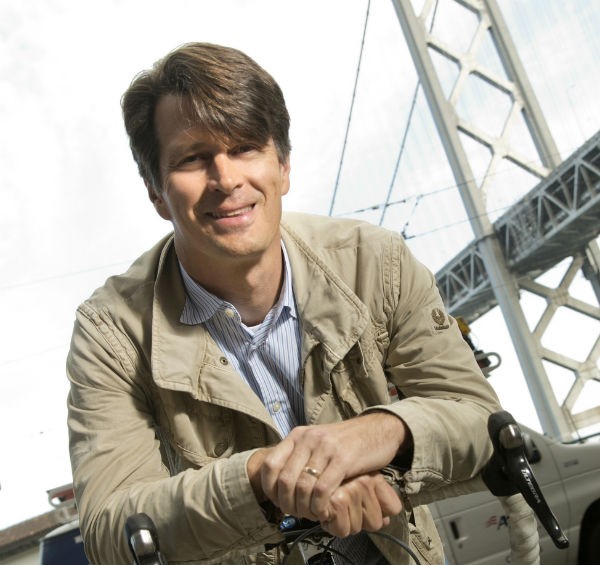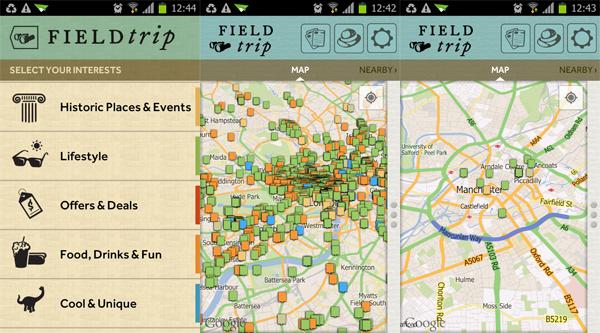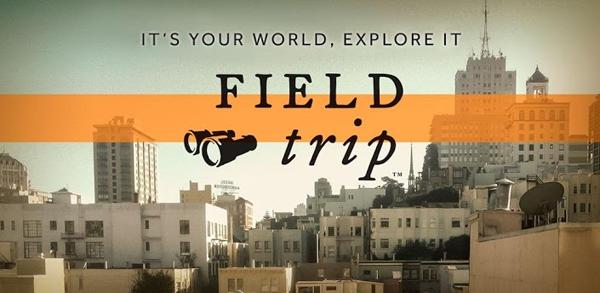John Hanke of Niantic Labs talks about Field Trip (original) (raw)

If you’re not using Field Trip, you really should. The popular Google app is a wealth of information, but not in the way you’re used to. As you travel through your day, be it in your surroundings or visiting another locale, Field Trip will inform you of all the cool (perhaps hidden) stuff around you. Chances are, you will find out a lot about your surroundings you didn’t know before a Field Trip card popped up.
I recently chatted with John Hanke, Director of Niantic Labs for Google, regarding Field Trip. Like everything to do with Niantic Labs, I found the time I spent with him to be informative and insightful. Niantic Labs is focused on the future of technology while helping us discover the relics of our past. A hard line to walk, but one they do really well.
Tell me about Niantic Labs. How did it come to be?
Niantic was started about two-and-a-half years ago, I came to Google quite a while ago with the Keyhole acquisition, and I wanted to start some projects from scratch. So, I was actually thinking of doing things outside of Google, but I spoke to various people about it, including Larry [Page], and we created a structure that would allow me to do something very much like a startup within Google.
The notion of a startup inside of Google is to explore apps that were really of the mobile world, and could only be done on a mobile device. We wanted to explore where things were going in terms of wearable computing, knowing things like Google Glass were on the horizon, and trying to develop apps that would really make the most of that. We had a couple of philosophical goals as well, and one of those was to deepen people’s connection with their world. Their city, their community, and to try to create apps to get them involved more. We didn’t want them to be pulled into this bubble of their mobile phone, and be closed off. We want them to explore all the beautiful stuff around them, not just use their device to check their social media stream, or look at stuff that was thousands of miles away.
So, we wanted to find a way to build applications that make the real world come alive, and pulls all the info from the web about your environment, to make that come alive for you.
Is there such a thing as “Niantic”, or is that an invented name?
The name, Niantic, came from an idea of exposing the hidden things in the world around you that you don’t know about. I came across a story of the Niantic, which is the name of a ship that came to SF during the Gold Rush. Like many ships, it ended up being stuck in the harbor because so many ships were jammed in there. Everyone was coming to CA to get rich, and many were coming by ship. They drug many of these ships on shore, and used them for buildings. Niantic has the history of being a hotel, a bar, and possibly a brothel. It was eventually just built over, so it’s there… buried in the muck, about a block away from the TransAmerica building. Nobody knows it, either. There’s a little brass marker, but nobody really knows about it.
So, the idea was “could you have an app that shows you all the really cool stuff around you, that you didn’t know about?” With field trip, we started with history. The original core of the app was “could we tell you the history of the world, ala Niantic?”
What challenges does Niantic face in building and maintaining an app like Field Trip?
Do you want the long list or the short list?!
Our goal is to have a really deep, rich global coverage, which is a tall order. We faced the same challenges in building out Google Earth and Google Maps. It’s a big project, and a huge challenge.
On the client software itself, it’s a whole new world. The idea of proactively reaching out to the user is a really new concept, whether that be through a notification that pops up, a Google Now card, or speech via a headset on a Bluetooth connection. Going through the feedback, and trying to better understand what users want and how we can best serve them is an ongoing process. We always want to know what works best for users, and we refine constantly to refine the product. The most recent update includes a new UI for the cards, and it also allows you to put the app into sleep mode.
Our iOS version is really important to us, and we’d been gearing up for that. We put a lot of effort into that.

Where is Field Trip currently available?
It’s available in the US and UK right now, but we’re working really hard at making it available everywhere else.
How does Field Trip choose gather information? How do you choose which information is important or otherwise appropriate for Field Trip?
It’s not everybody and anybody we gather from. I was actually discussing this topic this morning with a new member of the team, who will be working with partnerships, and we were discussing who we partner with. A large part of the personality of the product is determined by who the publishing partners are. There is this philosophy that have a unique perspective on a topic, like Atlas Obscura, who is not specific to an area, but they have a creative perspective of what they’re telling you about. What’s unusual? What do you probably not know? Historvius, which has a very different editorial perspective, their focus is on places of real historical significance. The thing those two have in common… and I’ve banned the phrase ‘point of interest’ from the team… is not a generic place, it’s a story with a unique perspective.
So, we’re looking for sites with a unique editorial voice. When we look at publishers for a city or topic, that’s our top line criteria. Then, of course, we partner with Google properties like Offers and Zagat, and those are working really well for everyone.
Which services or information is the most popular on Field Trip?
I can tell you that Arcadia, and the history layer in general… is very popular. Thrillist info is also really popular. Beyond that, it evens out a bit, but the popularity has a lot to do with how much content is provided to us by our partners. I would say the cultural and history are balanced nicely, and the more contemporary knowledge about where to eat and the like are catching up. Atlas Obscura is also really high up on the list. Zagat makes a decent showing, too, as people are turning to Field Trip more and more to discover where to have a nice time out. Ingress, even though it’s still beta, has some functionality for finding portals and such within Field Trip, and we’re seeing a lot of use there.
What’s next for Field Trip?
We just want it to be better! We aren’t really focused on adding features, per se. Our focus is on getting the best content to inform people of their environment. We try to improve it via making the client better, how it interacts with the user, not using too much battery on the client. Increasing our interaction with the publishers, but using the standards we talked about previously.
Feedback is also really important. We love knowing how users interact with the app so we can be smarter about which cards we show, when we show them, and what’s the most useful info for people. In a sense, the basic essence of what the user is seeing isn’t necessarily changing, but behind the scenes were constantly refining the rankings to get the best info out there at the right time. There is lots of low-hanging fruit for us to be smarter about how we do that, and we’re plucking it all the time.

Final thought
Field Trip begs an interesting question: can our history also be our augmented reality? The Niantic team thinks so, and they’re making it happen in a big way. If you don’t use Field Trip, give it a shot. Your city is probably built on a lot of forgotten facts and buried secrets. For a team that relies on the patina of our history, Niantic sure makes Field Trip shine.
http://www.youtube.com/watch?feature=player\_embedded&v=zusjUjaiWJQ